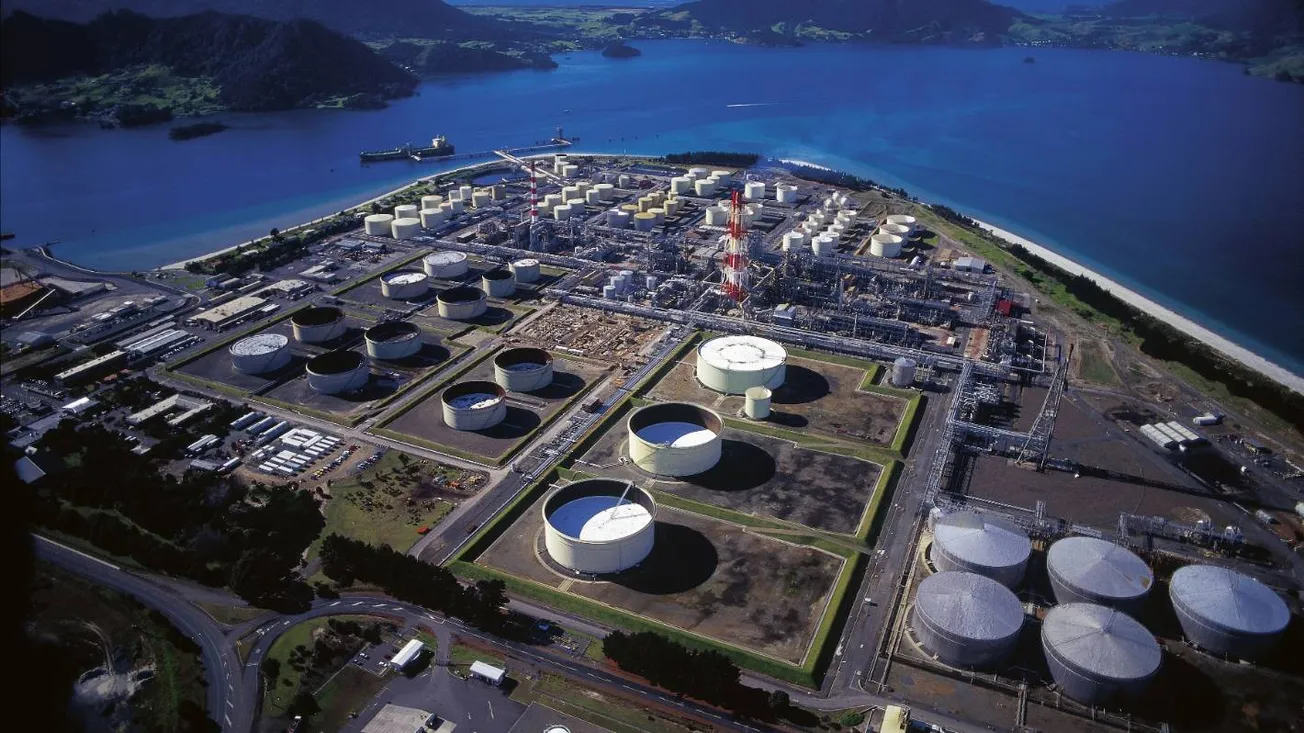Table of Contents
Mark Freeman
The closure of the Marsden Point oil refinery in April this year is a serious security threat to New Zealanders, according to an independent report into the closure. Operation Good Oil is a summary report and public awareness campaign by three citizen researchers.
The closure poses “a very clear and present danger to the lives and property of New Zealanders, and if not rectified, will likely cause an immense amount of hardship and damage to New Zealand,” the authors say in the report.
The researchers say the oil market in New Zealand is currently being manipulated to keep prices down through the release of reserve stocks and a 25 cent per litre cut in the petrol excise tax. However, they predict that next year there will be extreme refined fuel price increases, with prices for 91 unleaded increasing to over NZ$4 per litre.
Diesel is New Zealand’s main source of energy for agriculture and transport. But, without the refinery, “New Zealand does not have the capacity to produce the energy required for current existing primary industries.”
The Marsden Point refinery used to supply 65%-70% of New Zealand’s refined fuel, along with petrochemicals for industry, carbon dioxide for the food industry, sulphur for the agricultural industry and roading products such as bitumen and emulsions.
The refinery’s owners Refining New Zealand—now Channel Infrastructure—closed the refinery following a drop in refining profit margins. The drop was due to decreased demand for refined oil as a result of the government’s response to Covid-19.
A report prepared for the Ministry of Business, Innovation and Employment in 2020 found that the refinery was under severe financial pressure and that there was a risk that refining might not continue to be viable. However, it also said that closing the refinery would have a “significant impact” on New Zealand’s fuel security, including the “loss of ability to process New Zealand crude in a major supply emergency.”
Click to access impacts-report-march-2020-ex-mbie-june-2021.pdf
A spokesperson for energy minister Megan Woods said in June 2021 that the closure was not expected to have a significant impact on the country’s fuel security.
In December 2021, a report by Z Energy, one of Refining NZ’s shareholders, said the closure would “improve flexibility and resilience of the supply chain”.
However, RNZ reported that MBIE had been told that the fuel stockholding data in New Zealand were poor and the Maritime Union was sceptical of fuel security assurances by Refining NZ and Z Energy.
Operation Good Oil co-author Levi Wulf says the oil companies’ reasoning for their decision to close the refinery is “disingenuous”. “It’s a strange thing to do when global refining is going to be in short supply.”
The report argues that there is no logical economic case for removing refining or oil production from New Zealand’s energy supply chain.
“Had the refinery still been operating it would have been making record margins and profits in the current climate. It would also have been able to stockpile artificially deflated oil at bottom of the dip prices.”
Mr Wulf says trucking unions and farmer unions could look at a high court challenge over the refinery’s closure and believes they should consider acts of civil disobedience, such as refusing to pay diesel road user charges.
OGO_Marsden_Final_Summary (2)Download









